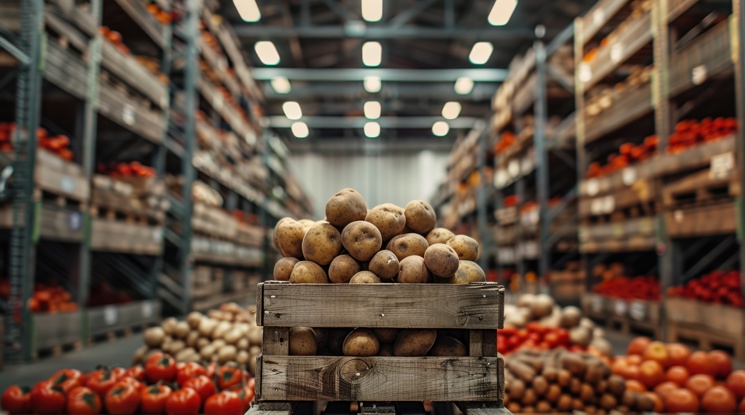Christmas Carbon Roast: Is Turkey the Real Villain?
Sprouts may be notorious for after dinner emissions, but when it comes to their carbon impact, they’re not the worst offenders on the Christmas dinner plate.
Sprouts may be notorious for after dinner emissions, but when it comes to their carbon impact, they’re not the worst offenders on the Christmas dinner plate.
At just 0.02kg of CO₂ emissions per portion, they’re practically saintly compared to turkey which produces 1.79kg of CO₂e per serving. Put it this way – one serving of turkey equals the carbon impact of 90 servings of sprouts[1].
At 0.02 kg and 0.06 kg CO₂e respectively, carrots and potatoes fall somewhere in between, proving that every ingredient plays its part[2]. It’s all about balance on the Christmas plate!
It’s not just what we eat – it’s what we waste. Every year, Brits bin 4.2 million Christmas dinners, including:
- Thousands of turkeys.
- Millions of sprouts, potatoes, and pigs in blankets.
- Enough gravy to fill an Olympic swimming pool.
And the humble potato? The most-wasted food in the UK.
Simon McKeating from the FDF Scotland’s Net Zero Commitment Programme says: “Our analysis of the emissions of our Christmas dinners is a bit of festive fun, but it does highlight the range of impacts what we eat can have. We’re by no means calling for people to only eat sprouts on Christmas Day. Net zero emissions does not mean zero emissions. But we should have a greater awareness of the impacts of our food choices on the environment and balance our diets.
“We spend 20% more on food at Christmas but waste far too much of it. Reducing waste is a simple way to cut emissions and protect the future of our food.”
With the UK food sector responsible for 21% of national carbon emissions, the pressure is on. Programmes like the FDF Scotland Net Zero Commitment are here to help food producers navigate the tricky balance between tradition and transformation while reaching Government and market Net Zero targets.
As Simon puts it: “We are here to take the strain off farmers and food producers, offering practical support to help them reduce emissions while preserving what we all love about Christmas.”
So, as you tuck into your festive feast, spare a thought for our food producers shoring up our future meals. Together, we can make sure the only thing explosive about Christmas dinner is the crackers – not the family member shovelling in sprouts to save the planet.
[1] Source – WRAP: https://tinyurl.com/WRAPRoast
[2] Source – British Nutrition Foundation: https://tinyurl.com/BNFRoast
